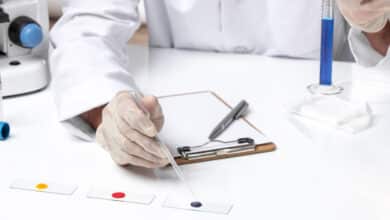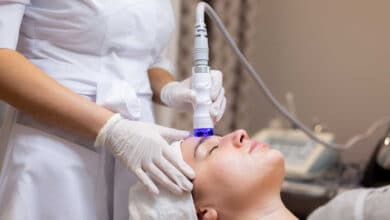Recovery From Wisdom Tooth Extraction

Aside from the cosmetic benefits, having your wisdom teeth removed may be necessary to correct certain dental problems. Whether you’re overdue for a dental procedure or are having trouble chewing food, these teeth may be the source of your discomfort. Regular dental visits can help identify problems with your teeth. Recovery from surgery usually takes about two weeks. Most people can go back to their daily activities after that time but also have Headache After Wisdom Teeth Removal. After wisdom tooth extraction, you can resume your normal activities.
Surgery
After surgery for wisdom tooth extraction, you should take at least a few days off work and avoid strenuous exercise. If you undergo intravenous sedation, you may not be able to drive for up to 24 hours. Alternatively, you may need to use a water pick afterward. This is because hard food can get stuck in the spaces left by the wisdom teeth. After surgery, you should take the prescribed medications.
A typical wisdom tooth extraction can take 45 minutes to one hour. The length of the surgery depends on the complexity of the case. The procedure is not risky, but you should refrain from driving or operating heavy machinery for at least a day afterward. The procedure usually takes around 45 minutes to an hour, and you will be required to undergo blood tests and vital signs. However, once the operation is complete, you can return to your normal activities.
Pain
After your wisdom tooth extraction, you’ll likely experience some pain. You can expect the pain to increase over the first 24 hours, and to last for a week or so. Your dentist will likely prescribe painkillers and analgesics to help you deal with the discomfort. It’s important to ingest these medicines, as directed by your dentist. You may also experience swelling or bruising, which your dentist can discuss with you.
Often, the pain you experience after extraction of a wisdom tooth is caused by a partially or fully impacted tooth. The teeth that are partially impacted have broken through the gum but are still partially in place. The pain persists even after the extraction. During the first few days after your extraction, your gums may swell. As the swelling and pain go down, your teeth will start to adjust. In some cases, it may be necessary to have more than one wisdom tooth extraction, or your dentist may recommend that you schedule a surgery to remove all four wisdom teeth.
Recovery
You can expect bruising and swelling after having your wisdom tooth removed. Ice packs or cold compresses may help reduce the swelling and pain. You may also want to take pain medication. If your mouth feels sore or tender, avoid heat and strenuous activity for the first 24 hours. After 48 hours, you can slowly begin eating solid food. You can eat more solid foods after several days. Recovery from wisdom tooth extraction is a relatively straightforward process.
You will be required to take some time off work and take pain medication for the next couple of days. The surgical site will feel slightly sore and swollen, but it will subside within a few days. Your dentist may also recommend taking antibiotics to minimize any potential infection. You should also avoid driving for at least 48 hours. After the procedure, you can resume normal activities, though pain may persist for up to a week.
Recovery time
During the first week following the surgery, most patients can eat soft foods and drink plenty of fluids. They should also avoid heavy exercise and any type of strenuous activity for a few days. Although the pain is mild to moderate, it can last for up to three days. Once the swelling has subsided, patients can begin to eat solid foods and resume their normal dental routine. However, it is best to avoid any strenuous exercise until the symptoms have gone away.
After the procedure, patients may experience bruising, swelling, and limited jaw opening. The onset of these symptoms usually subside on day three or four. After this point, patients can return to normal activities and resume working. Although they may experience bruising and swelling for several days, the extraction site is usually fully healed and they can resume normal activities after day four. A patient should follow instructions carefully and take pain medications as instructed. If the wound becomes infected, the recovery process may take even longer.
Preparation for surgery
In the days before your surgery, you should avoid chewing hard foods and avoiding hot beverages. You should also avoid drinking alcohol and eating hard foods until the swelling is gone. The day of the surgery, you can start to eat soft and cool foods, such as applesauce and cottage cheese. You should avoid berries with seeds and other foods high in sugar or acids. You can also use a straw to drink liquids, such as Gatorade.
Before the procedure, you should take pain relievers. You can also purchase over-the-counter or prescription medications. You should also take any necessary paperwork to your surgery, including dental insurance cards. Your surgeon may advise you to get a ride home after the procedure. Otherwise, you can wait in the waiting area. The doctor may take several hours to complete the procedure, so be sure to bring someone with you. If you don’t have anyone to drive, you should make arrangements to stay with a family member or friend.
Recovery from surgery
Recovery from wisdom tooth extraction surgery requires patients to rest and limit physical activity for at least the first two days. It is also important that patients avoid using a straw or vigorous swishing as these can dislodge blood clots. Patients should also increase the amount of fluids they consume, and stick to soft, cold foods. Patients should avoid vigorous swishing, which can also lead to dry socket. The area will remain numb for several hours after surgery, and soft, cool foods will be helpful.
Although this dental procedure is relatively common, it still has its risks and can require weeks of recovery. Although recovery time is typically less than a week, the time it takes to fully resume your normal activities is dependent on the severity of the surgery. Recovery time for impacted teeth, which have not emerged through the gums, can take even longer. If you’ve been diagnosed with impacted wisdom teeth, you may have to have them surgically removed to alleviate the pain.
Also Read: Quality Control Software For Document Control.






